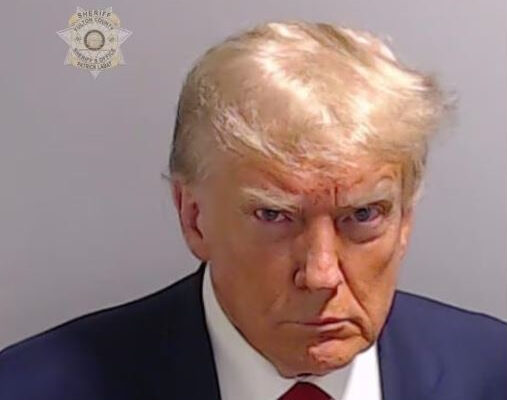Donald Trump’s legal trials, hoped for by some, surprising to others are slowly becoming more imminent. Indictments were made, dates were set, concepts have become realities. Donald Trump, the 45th President of the United States, continues to be a central figure in American politics. As he faces upcoming trials, it is crucial to explore the latest updates, reasons behind his attempts to move trials to federal courts, implications for his political career, the potential consequences for his associates, and the broader impact on future political behavior standards.
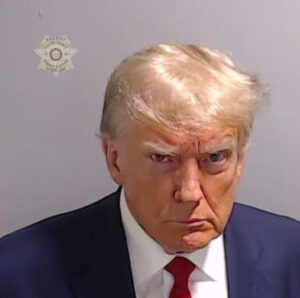
Contents
- 1 Moving Trump’s Criminal Trials to Federal Courts
- 2 Federal Courts’ Political Persuasions
- 3 Implications for Trump’s Re-election Prospects
- 4 Impact on Trump’s Political Career
- 5 Consequences for Trump’s Associates
- 6 Trump Associates Convicted
- 7 Potential Future Convictions
- 8 Chances of Trump Going to Jail
- 9 Potential Prison Time
- 10 Pardoning
- 11 Precedents for Future Political Behavior
Moving Trump’s Criminal Trials to Federal Courts
Donald Trump’s legal team’s recent efforts to move some of his trials to federal courts have ignited discussions about the practice of forum shopping in the legal realm. Forum shopping involves the deliberate selection of a specific legal jurisdiction to maximize the chances of achieving a favorable outcome. In the case of Trump, this strategic move appears to be rooted in the belief that federal courts may provide a more sympathetic or politically advantageous setting for his legal battles.
One potential motivation behind Trump’s desire to shift his trials to federal courts is the perception that these venues may be more favorable to his defense. Federal judges are appointed for life and tend to be more insulated from the immediate pressures of partisan politics, which can sometimes influence state-level judicial proceedings. Trump’s legal team may believe that federal judges could be more inclined to interpret the law in a manner that aligns with his defense arguments, possibly resulting in more favorable rulings.
Moreover, the choice to move to federal courts could be driven by a strategic calculation related to the composition of the courts themselves. During his presidency, Trump appointed numerous federal judges, including three Supreme Court justices. These appointments may lead Trump and his legal team to believe that federal courts, including the Supreme Court, could be friendlier forums for his cases.
This potential advantage may influence his decision to seek a change in venue, as he may believe that these judges are more ideologically aligned with his positions and may be more likely to rule in his favor. However, it’s important to note that whether Trump’s forum shopping strategy proves successful or not will depend on the specific legal issues, the judges assigned to his cases, and the broader legal context surrounding each trial.
Federal Courts’ Political Persuasions
Federal courts in the United States are composed of judges appointed by presidents who represent different political parties. As a result, federal judges can have varying political persuasions that may influence their judicial decisions. The political leanings of federal judges are often a topic of debate, especially when high-profile cases involving political figures like former President Donald Trump are in question.
During his presidency, Donald Trump had the opportunity to appoint a significant number of federal judges at various levels of the judiciary, including district court judges, appellate court judges, and three Supreme Court justices. These appointments reflected Trump’s commitment to reshaping the federal judiciary in a more conservative direction. Many of the judges he appointed were seen as being ideologically aligned with conservative principles, which included a strict interpretation of the Constitution, limited government intervention, and a focus on individual liberties.
Given the considerable influence of these appointments, there is a perception that federal courts may be more politically polarized than in the past. Critics argue that judges appointed by Republican presidents may be more likely to rule in favor of conservative positions, while judges appointed by Democratic presidents may lean toward liberal interpretations of the law. This perception has sparked discussions about whether judicial decisions are increasingly influenced by political ideology.
It’s important to note that while the political affiliations of judges may play a role in their judicial philosophy, federal judges are expected to interpret the law impartially and independently. The judicial system has mechanisms in place to ensure that judges remain neutral and adhere to the rule of law, regardless of their political backgrounds. However, the debate over the influence of political persuasions on judicial decisions continues to be a significant aspect of the American legal landscape, especially in high-profile cases that touch on political issues. Ultimately, the impact of political persuasions on federal court decisions can vary depending on the specific case, the judge’s judicial philosophy, and the legal principles at stake.
Implications for Trump’s Re-election Prospects
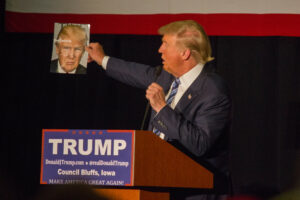
The trials have significant implications for Trump’s potential bid for the presidency in the future. If he is convicted in any of these trials, it could seriously damage his prospects. A conviction would tarnish his image and make it difficult to garner broad support among voters.
Impact on Trump’s Political Career
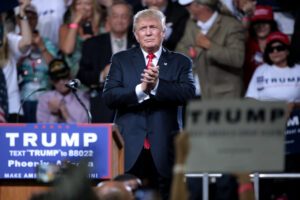
Trump’s criminal trials and legal challenges that he faces have significant implications for his political career. The outcome of these trials could potentially have a destructive impact on his political ambitions. A conviction, should it occur, could lead to the loss of his ability to run for public office, effectively ending his political career in terms of seeking elected positions. This would be a substantial blow to his long-standing presence in American politics. Avoiding this , distracting from it or better yet leveling the playing field with his main opponent would be to his great benefit. Not unsurprisingly, Republicans are hard on the train to push for the impeachment of President Biden.
However, even if Trump were legally barred from running for office, his influence on the Republican Party may continue to endure. Trump has maintained a dedicated and fervent base of supporters who are deeply loyal to him and his brand of politics. This base has proven to be a significant force within the Republican Party, influencing its platform and candidate selection. Trump’s endorsements and rallies for other Republican candidates have been instrumental in their election successes. Therefore, while he may no longer be able to run for office himself, his influence on the party’s direction could remain potent.
Another factor that could impact Trump’s political career is the nature of the legal charges and their outcomes. If he were to be acquitted in the trials he faces, it could strengthen his standing among his supporters, who may view him as having been unfairly targeted by political opponents. An acquittal could also embolden Trump and potentially encourage him to explore another presidential run in the future. Conversely, if he were to face convictions, it could tarnish his reputation and diminish his appeal to both voters and the broader Republican Party.
The legal battles and their potential impact on Trump’s political career highlight the complex relationship between legal accountability and political influence. Trump’s political future will not solely depend on the legal outcomes but also on how he navigates the shifting dynamics within the Republican Party and how his base of supporters responds to these developments. In the realm of American politics, Trump remains a central figure, and the consequences of his legal challenges will undoubtedly continue to shape the political landscape in the years to come.
Consequences for Trump’s Associates
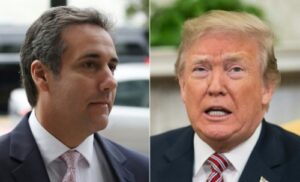

The legal consequences faced by several of Donald Trump’s close associates have cast a shadow over his presidency and have raised questions about the potential implications for Trump himself. Notable figures like Michael Cohen, Trump’s former personal attorney, and Paul Manafort, his former campaign chairman, have already been convicted of various offenses related to their association with Trump. These convictions have put Trump’s inner circle under scrutiny and may serve as a precedent that could lead to further convictions of his associates who may have been involved in wrongdoing.
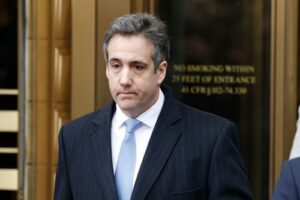
One key aspect to consider is the extent of knowledge and involvement that these close associates had in relation to Trump’s actions. Convictions of individuals like Cohen and Manafort have demonstrated that the legal system is willing to hold high-ranking members of Trump’s inner circle accountable for their actions. If Trump himself is convicted, it could set a precedent that encourages further investigations into the conduct of others closely associated with him, as it may be seen as a signal that the legal system is willing to pursue accountability up the chain of command.
Moreover, the legal consequences for Trump’s associates underscore the potential pressure that could be exerted on them to cooperate with investigators. Facing the prospect of conviction and imprisonment, individuals may be more inclined to provide information or testimony that could be damaging to Trump if it leads to reduced sentences or other legal benefits. This dynamic can add another layer of complexity to the legal challenges facing Trump and his inner circle.
It’s important to note that the legal landscape is dynamic, and the outcomes of Trump’s legal battles and investigations can have far-reaching implications. While convictions of Trump’s associates may set a precedent for accountability, the legal system is also designed to ensure due process and protect individuals’ rights. Any legal consequences for Trump and his associates will depend on the specific evidence and circumstances surrounding their cases.
In the broader context of American politics, the legal challenges faced by Trump and his associates have been a subject of intense public interest and political debate. They highlight the intersection of law, politics, and accountability and may continue to shape discussions about ethical standards and the rule of law in the United States for years to come.
Trump Associates Convicted
Several of Trump’s associates have either been convicted or pleaded guilty of a growing number of crimes. Michael Cohen, Trump’s former personal lawyer, and Paul Manafort, his former campaign chairman, were among the notable Trump associates convicted. Allen Weisselberg (link) 75, the longtime chief financial officer of the Trump Organization, reached a deal with the Manhattan District Attorney’s Office, pleading guilty to 15 Felonies.
Potential Future Convictions
The trials of Trump’s associates, like Rudy Giuliani and others, have been ongoing or under investigation. Their legal fates may depend on the evidence presented and the outcomes of Trump’s trials. The chances of more convictions depend on the specific charges and the strength of the cases against them. The potential crimes for which Trump or his associates could be convicted would depend on the specific charges brought against them. These charges could range from financial crimes and perjury to obstruction of justice or abuse of power. The range of possible sentences would also vary depending on the nature and severity of the charges.
Chances of Trump Going to Jail
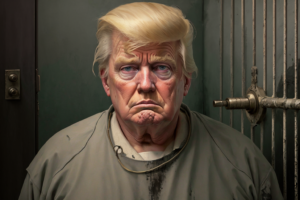
The likelihood of Donald Trump going to jail depends on the verdicts in his trials. If he is found guilty of charges such as obstruction of justice, tax fraud, or other crimes, he could face imprisonment. However, predicting legal outcomes is complex, and much will depend on the strength of the evidence presented.
Potential Prison Time
The potential prison time for Donald Trump, if convicted, would vary depending on the specific charges and their associated sentencing guidelines. It could range from a few years to a more substantial sentence, depending on the severity of the offenses.
Pardoning
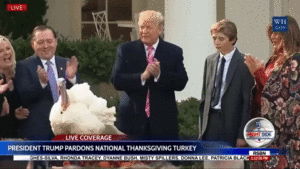
The question of whether Donald Trump could pardon himself if convicted is a complex and contentious legal issue that has been the subject of much debate among legal scholars and experts. The Constitution grants the President the power to issue pardons, which is found in Article II, Section 2. However, the language of the Constitution does not explicitly address whether a president can pardon himself.
One argument against the possibility of a self-pardon is based on the principle that no one should be the judge in their own case. Proponents of this view argue that the framers of the Constitution did not intend for the presidential pardon power to be used for self-preservation. If a sitting president were allowed to pardon himself, it could potentially undermine the checks and balances that are crucial to the American system of government.
On the other hand, some legal scholars argue that the presidential pardon power is quite broad and does not contain specific limitations in the text of the Constitution. They contend that if a president were to attempt a self-pardon, it would be untested legal territory, and the courts might ultimately have to decide the issue. This uncertainty leaves room for differing interpretations of the Constitution’s intent.
It’s worth noting that the Department of Justice’s Office of Legal Counsel (OLC) issued an opinion in 1974, during the Nixon administration, stating that a president cannot pardon himself. While OLC opinions are not binding law, they are often considered influential interpretations of the law.
Ultimately, the question of a self-pardon would likely be decided by the courts or by Congress if it were to arise. Such a move by a sitting president would undoubtedly set significant precedents and raise constitutional questions about the limits of presidential pardoning power. It would be a momentous and historic legal battle that would have far-reaching implications for the principles of democracy and accountability in the United States. Until such a situation arises, the legal debate surrounding self-pardons remains a topic of speculation and constitutional interpretation.
Precedents for Future Political Behavior
The outcome of Trump’s trials will undoubtedly set precedents for future standards of political behavior. It will influence how elected officials are held accountable for their actions while in office and their conduct after leaving office. These trials may reshape the boundaries of acceptable behavior for public figures and impact the relationship between politics and the legal system.
As Donald Trump faces upcoming trials and explores the possibility of moving them to federal courts, the implications for his political career, his associates, and the standards of political behavior are significant. These legal proceedings will continue to be closely watched, as they have the potential to reshape the political landscape in the United States for years to come.

